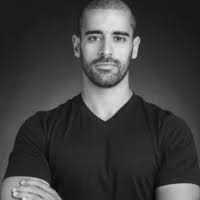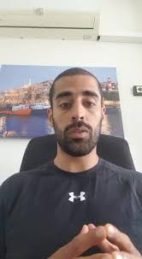“The conquest of cultural power comes before political power,” philosopher Antonio Gramsci wrote a century ago.
Last month, three alarming incidents occurred within the span of just a week: a Palestinian girl and her three-year-old brother were tied to a tree in the occupied West Bank; a Palestinian bus driver was attacked by a mob in Jerusalem; and an American woman was assaulted by Zionists on the streets of New York.
Compared with the scale of the disaster in Gaza, these events might seem minor – but it is important to view them as part of an ongoing process that is intensifying and transcending borders.
The common thread linking these events is not only the right-wing Zionism of the perpetrators, but also the world’s passive acceptance, as settler-colonial violence spills over from the occupied territories into Israel’s 1948 borders and Jewish communities abroad.
While many Zionists would portray these attackers as “bad apples” or an “extremist minority”, the truth is that their behavior reflects the success of a cultural revolution within Israeli society.
They demonstrate how Israel’s genocide in Gaza is enabled by the internalization of popular slogans like “flatten Gaza” and “throw them into the sea” – slogans once confined to the fringes, but now manifested in real-world violence.
This messianic worldview even extends to the world of diplomacy, where Israel recently sparked anger among the Catholic establishment for deleting a condolence tweet upon the death of Pope Francis and sending only a lower-ranking representative to his funeral. The Pope was seen an an opponent of Israel’s genocidal war on Gaza, and thus, endorsing him could harm Prime Minister Benjamin Netanyahu’s reelection prospects.
Political calculations
Netanyahu’s behavior is not accidental. It is calculated and aligned with political interests, particularly among the base of National Security Minister Itamar Ben Gvir, who has become an icon for many young Israelis.
Ben Gvir embodies the cultural shifts within Zionism and Israeli society. He was infamous in the 1990s for stealing the Cadillac hood ornament from former Prime Minister Yitzhak Rabin’s car, holding it up on live television and declaring: “If we got to the symbol, we can get to Rabin too.” Later that year, Rabin was assassinated by Yigal Amir, a man linked to the same messianic right-wing circles.
It would be a mistake to attribute the recent changes solely to the war in Gaza. While the war might have accelerated the process, the deeper cultural transformation began after the failure of the Oslo Accords and the Second Intifada, when Israeli society refused to relinquish control over the occupied Palestinian territories.
As he rose to power, Netanyahu launched an ambitious project to rebuild the country – not as a state striving for global integration, but as an unrestrained, unapologetic Jewish nation that views the world as a perpetual existential threat.
Netanyahu resolved the internal contradictions of Zionism, the last active settler-colonial movement of the 21st century. At a time when colonialism and occupation are global taboos, Netanyahu provided a new path for a society that still wants to dominate, but also craves western legitimacy. His solution was simple: discard the liberal facade.
The global rise of populist right-wing forces, especially Donald Trump’s presidency in the US, along with the weakening of international institutions, gave Israel the opportunity to shed the rhetoric of human rights and restraint. In its place, it openly pursued long-standing Zionist goals: transferring Palestinians, using unrestricted military force, and expanding into neighboring Arab countries.
What is even more critical, from a Palestinian perspective, is the world’s growing willingness to accept this culture.
Even as Israeli violence becomes more visible, politicians like Ben Gvir are welcomed as honored guests in the US, while footage of a Zionist mob chasing a young woman through New York’s streets receives little to no media coverage. Imagine what the international reaction would have been if the assailants had been Muslim men.
Uncritical support
This shows how – despite some shifts in global public opinion, particularly amid the Gaza genocide, where Israel is increasingly seen as the aggressor – power centers in the western political, media and business spheres continue to offer uncritical support for Israeli society.
For Palestinians, this reality demands a serious political reckoning. Analyst Norman Finkelstein recently highlighted this challenge to Middle East Eye, pointing out that Palestinian movements often underestimate the centrality of power itself.
Finkelstein illustrated this by referencing the recent departures of several university presidents in the US – two of whom were women of color – over their failure to take harsher actions against pro-Palestinian campus protests. No one from the Democratic Party came to their rescue.
Finkelstein further warned of how “cancel culture” might have ultimately weakened the Palestinian movement, by paving the way for the suppression of legitimate political speech. His comments underscore the need to think of politics as a means of gaining power – not at any cost, but through informed and serious debate, carefully examining the available possibilities. At a time when a genocide is occurring and children are being murdered daily, this is especially critical.
The lesson for Palestinians is thus clear: we must urgently begin constructing an alternative to Israel’s genocidal culture.
We must grapple with humanitarian and national questions without losing our own humanity. We must find ways to build power, organize across movements, and create broad coalitions – building a true democratic alternative to the nightmare now confronting the region.
-Abed Abou Shhadeh is a political activist based in Jaffa. Abou Shhadeh served as a city council representative of the Palestinian community in Jaffa-Tel Aviv from 2018 to 2024 and he holds an MA degree in political science from Tel Aviv university. His article appeared in the Middle East Eye.














